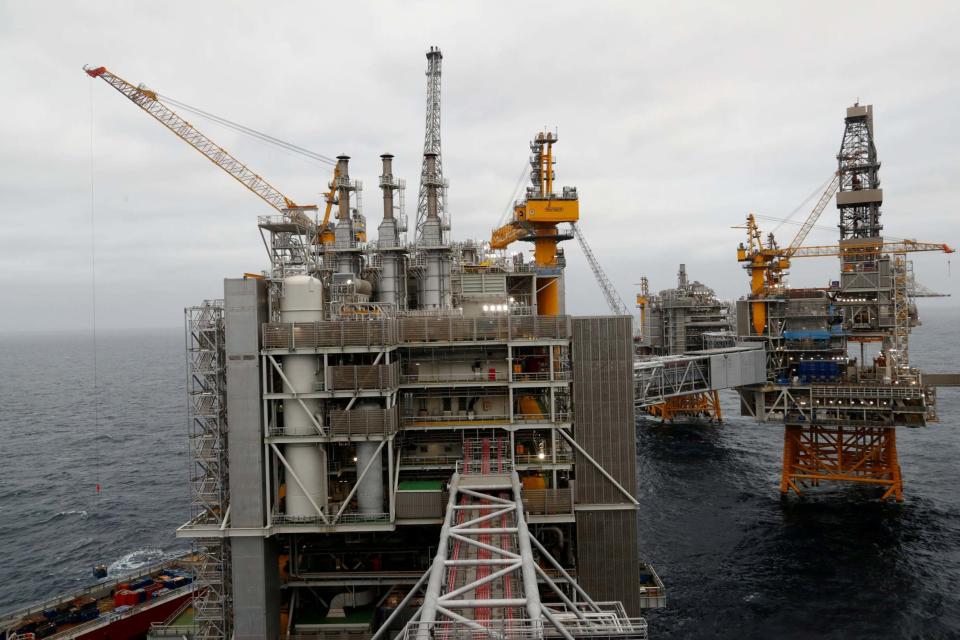Are oil companies ready for the post-pandemic world?

Oil tankers are often used as an analogy for organisations that are slow, cumbersome and take an enormous amount of effort to switch course.
It is a characterisation that is unfair on the huge boats themselves, which are, apparently, surprisingly nimble. But it is often true for the large oil firms that use them to transport their product, and that presents the world with a problem.
This week we have had a small preview of what might be in store. In response to a plunging fuel demand caused by the pandemic, Shell wiped $22bn off the value of its fossil fuel assets on Tuesday, following a similar move by rival BP last week.
Millions of barrels of the black gold which Shell plans to sell over the next couple of years will be worth less than Shell had previously thought.
The only question, according to Nicholas Hyett at Hargreaves Lansdown, is whether Shell has been too optimistic in its projections, meaning further write-downs could be on the cards.
So far, the situation is far from being life-threatening. To put it in some kind of context, Shell generated $345bn in revenue last year.
But it matters because it takes a long time and lots of money to decommission big oil projects and to shift the course of a huge company. If oil giants leave it too late, and government policies change quickly, they are in trouble.,
Unless they begin to change course soon and properly invest in cleaner energy, they risk becoming obsolete as many of the reserves in which they have invested tens of billions of dollars become worthless.
That in turn could not only destroy billions of pounds of investment, but also leave governments with the huge burden of cleaning up oil and gas fields, or face further environmental damage by leaving them to decay.
Research by think tank Carbon Tracker found that in the US, which is home to millions of relatively small oil wells, hundreds of thousands have been closed or left idle after becoming unprofitable. In many cases the owners, which include small independent producers, have not set aside money for proper and safe closure.
Such a situation does not yet face the big multinationals. Most experts and oil producers are planning for a prolonged period of lower prices which will be painful for big oil firms but they will ride it out.
The real problem comes when prices look set to remain permanently low, or enter terminal decline. Then they are left with useless oilfields producing crude that no one wants to buy, with no prospect of recouping their losses.
It’s far too early to start pronouncing the death of the oil industry. Governments provided $5.2 trillion of subsidies for fossil fuel production in 2017 according to the International Monetary Fund (IMF). And we are still reliant on oil to power aeroplanes, shipping and a number of important industrial processes which cannot yet be electrified on a mass scale.
But recent write-downs by fossil fuel companies may be a glimpse of a process that is set to accelerate.
Looking forward, it’s difficult to see much of an upside for oil and gas. Renewable energy is now significantly cheaper, and it does not have to be shipped in from other countries, a number of which are politically unstable.
The best outcome for the industry would be managed decline of existing fossil fuel assets alongside a steady shift towards less profitable but more sustainable forms of energy.
The worst-case scenario (other than the Earth’s incineration) would be to underestimate the rapidity of the rise in political will to ditch fossil fuels.
It is the latter course that the corporate behemoths appear to be treading. In fairness, they have cut back hugely on planned investment in new fields but still plan to invest hundreds of billions in additional oil and gas supply. And their investments in clean energy remain tiny by comparison.
Despite plans to reach net zero emissions by 2050, the spending plans of most major oil companies still appear to fail to take into account how fast policies might change, especially in the wake of the coronavirus pandemic as governments seek to get their economies back on their feet.
In years past, there has been a recurrent habit of using a crisis as an excuse to switch to cheap and dirty energy like coal. Governments have frequently prioritised growth at any other cost.
But there is reason to think this time might be different. Coal is no longer cheaper and there is far more momentum behind genuine action on climate this time around than there was even as recently as 2008.
If Big Oil needs a cautionary tale to demonstrate just how quickly the winds can change, it need only look across at Big Coal. Since 2010, the combined value of the top four US coal producers has fallen by more than 99 per cent.
Read more
Shell to write off $22bn as pandemic hurts oil prices
Minnesota sues oil companies for fraud on climate change
Ian Taylor: Trader who transformed Vitol into an oil powerhouse
Oil lobbyists for UK firms push Norway to avoid strict Arctic curbs

 Yahoo Finance
Yahoo Finance 